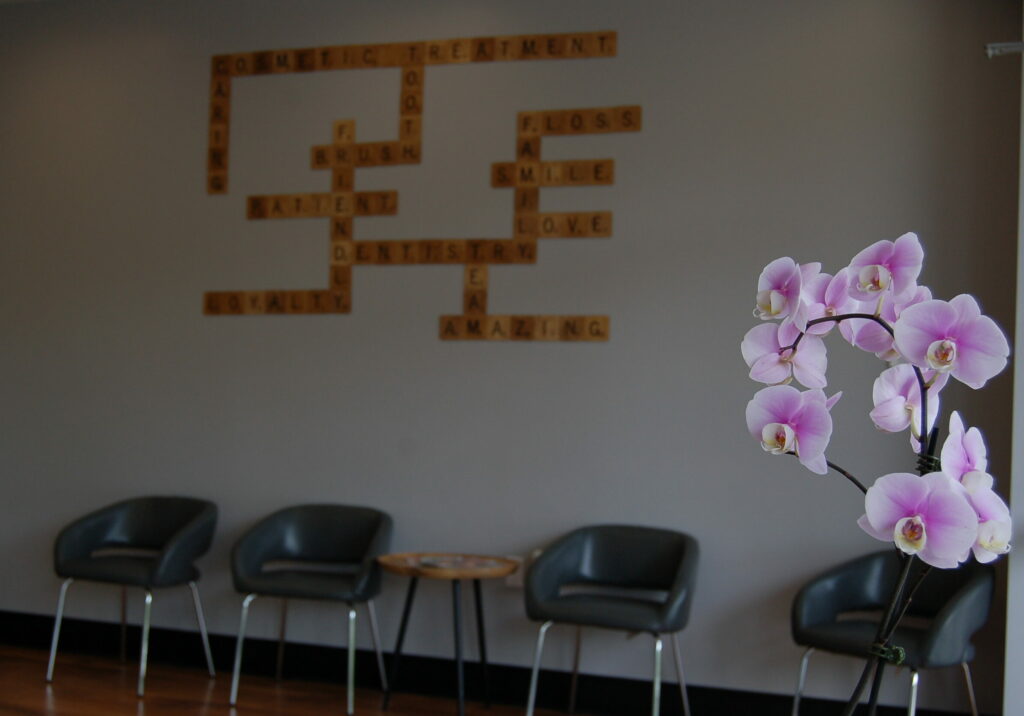
01 Aug Cultural Practices in Dental Care Around the World
Maintaining oral health is crucial, but methods vary globally. Cultures around the world have developed unique dental care practices. Let’s explore five interesting and diverse approaches to dental care from different regions.
Miswak Use in Middle Eastern and African Cultures
In many Middle Eastern and African countries, miswak is a traditional dental care tool. Miswak is a teeth-cleaning stick made from the Salvadora persica tree, commonly known as the “toothbrush tree.” This natural tool has been used for centuries, primarily in Muslim communities, as it’s mentioned in Islamic texts. Using miswak involves chewing on one end of the stick until it forms bristles, then using it like a toothbrush. Miswak contains natural antibacterial properties, which help reduce plaque and prevent gum disease. Unlike synthetic toothbrushes, miswak also releases beneficial compounds directly into the mouth, promoting oral health.
Miswak’s popularity isn’t just historical; it’s seeing a resurgence. Many people now appreciate its eco-friendliness and natural benefits. In modern urban areas, you might see people combining miswak with regular toothpaste routines. This blend of tradition and contemporary practices showcases how cultural heritage can harmonize with modern dental care needs. Embracing miswak reflects a respect for natural resources and sustainable living. Its ongoing use underscores the value of ancient wisdom in promoting health, offering an alternative to plastic toothbrushes and chemical-laden dental products.
Oil Pulling in India
India’s Ayurvedic tradition includes a practice called oil pulling. This involves swishing oil, typically coconut or sesame oil, in the mouth for about 15-20 minutes. Oil pulling is believed to remove toxins, improve oral health, and whiten teeth. This method works by pulling out bacteria and other pathogens from the mouth, reducing plaque buildup and preventing cavities. Coconut oil, often preferred for its pleasant taste and antibacterial properties, helps in maintaining a balanced oral microbiome.
Oil pulling is simple: take a tablespoon of oil and swish it around your mouth before spitting it out. It’s crucial not to swallow the oil as it contains the extracted toxins. This practice can be incorporated into a morning routine, offering a natural, chemical-free way to enhance oral hygiene. Oil pulling’s resurgence aligns with the growing interest in holistic health practices. People worldwide are now adopting this method, appreciating its natural approach to dental care. It represents a blend of traditional wisdom and modern health trends, showing how age-old practices can find relevance today.
Chewing Sticks in Nigeria
In Nigeria, chewing sticks are a common dental care tool. These sticks, often from the neem or licorice tree, are used similarly to miswak. They have natural antibacterial properties that help maintain oral hygiene. To use a chewing stick, one chews on the end until it forms bristles. These bristles are then used to clean the teeth, similar to a toothbrush. Chewing sticks are accessible, biodegradable, and affordable, making them a popular choice in both rural and urban areas.
Research shows that chewing sticks are effective in reducing plaque and preventing gum disease. Their natural fibers help in mechanically cleaning the teeth while the tree’s inherent antibacterial compounds enhance oral health. This practice highlights the ingenuity in using local resources for health purposes. Chewing sticks offer an eco-friendly alternative to plastic toothbrushes, aligning with sustainable living principles. Their use in Nigeria reflects a deep-rooted cultural practice that emphasizes natural and accessible healthcare solutions.
Green Tea Rinsing in Japan
Japan is known for its green tea culture, and this extends to dental care. Green tea rinsing is a traditional practice believed to promote oral health. Green tea contains catechins, natural antioxidants with antibacterial properties. Rinsing the mouth with green tea helps reduce oral bacteria, prevent cavities, and improve gum health. It also aids in freshening breath naturally. The practice is simple: brew a cup of green tea, let it cool, and use it as a mouth rinse.
Green tea’s health benefits are well-documented, and its use in dental care is an excellent example of leveraging everyday beverages for health purposes. Japanese culture often integrates such practices into daily routines, promoting a holistic approach to health. This tradition underscores the importance of natural and preventive healthcare methods. By incorporating green tea rinsing, individuals can enhance their oral hygiene in a simple, cost-effective, and enjoyable way. It’s a testament to how cultural habits can provide valuable health benefits.
Charcoal Use in Southeast Asia
In Southeast Asia, using charcoal for teeth cleaning is a traditional practice. Activated charcoal is known for its detoxifying properties, and many cultures have used it to maintain oral health. Charcoal toothpaste and powders are becoming popular worldwide, but in Southeast Asia, people have long used natural charcoal to clean their teeth. The fine, abrasive texture helps remove stains and whiten teeth. It also binds to toxins and bacteria, aiding in their removal from the mouth.
To use charcoal, one can apply a small amount to a toothbrush and brush gently. It’s important to rinse thoroughly afterward to avoid any residue. While charcoal use can be effective, it should be used in moderation to prevent enamel damage. This practice highlights a return to natural, minimalistic approaches to health. It showcases the innovative use of available resources in traditional cultures. As modern dental care products evolve, many people are rediscovering these ancient methods, blending them with contemporary routines for enhanced benefits.
Conclusion
Exploring these diverse dental care practices reveals the rich tapestry of global oral hygiene traditions. Each method reflects a unique cultural approach to health, emphasizing natural and sustainable solutions. By understanding and appreciating these practices, we can learn valuable lessons in maintaining our oral health through natural means.
Want to learn more about different dental practices and how they can best serve you? Knoxville Family Dental is accepting new patients and offers dental advice for all different circumstances. Schedule an appointment today!

About Our Team
Our team of dental experts have over 30 years of experience in the field of dentistry, and we’re passionate about educating our patients.

Sorry, the comment form is closed at this time.